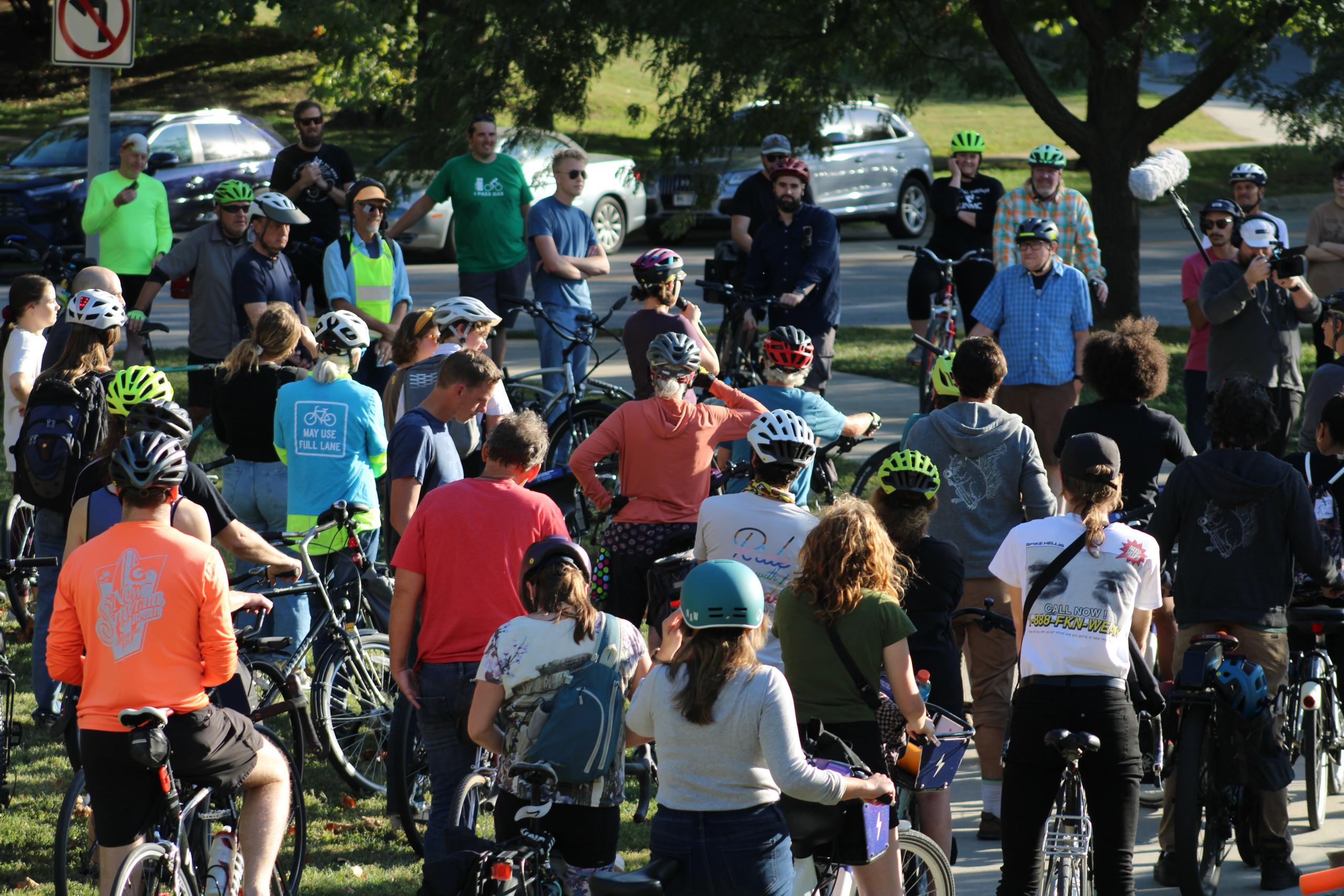Mode Shift Omaha and Omaha Bikes sent Mayor and City Council Candidates a list of questions related to transportation in the Omaha-area. You can read the responses in full here. Thank you to the candidates that responded!
We were impressed with the responses we received from Mayoral candidates Brad Ashford, Jean Stothert and Jim Suttle (unfortunately, we received no responses from David Nabity or Dan Welch). Here is our analysis of the responses.
Mode Shift Omaha supports expanding transportation options for everyone in Omaha, to improve quality of life and better serve Omaha residents, but also to improve health and enhance environmental and fiscal sustainability. To this end, all three of the candidates supported in one way or another expanding transportation options in Omaha and generally agreed on most areas addressed in our questions.
Ashford and Suttle, while acknowledging that cars will remain the dominant mode of choice for most people, took what seemed to be a more system-wide perspective in that they articulated a “complete streets” or “balanced network” approach to address pressing transportation needs, including congestion, safety and street improvements as well as to make Omaha more attractive to new talent and meeting the mobility needs and desires of citizens. This is in line with the goals of the Transportation and Environmental Element of the City’s Master Plan. Stothert also saw the value in providing more transportation options and its importance to serving citizens and addressing safety and congestion, but for the most part it seemed to be as an addition, if “reasonable and affordable,” to the existing (car-centric) system.
Given increased congestion and reduced funding for transportation, Ashford notes that rather than spend more on transportation projects, we have to make smarter transportation investments, focusing on street connectivity as a means to reduce the total number of vehicle miles traveled. Stothert also believes we do not need to spend more, just spend more wisely. One way she would do this is through better signaling and more ride sharing, along with more clustered development and non-vehicle transportation. Suttle would encourage development inside the freeway loop, spurring transportation options that would reduce congestion.
All three candidates saw infill and implementing strategies to promote infill as important to fiscally sustainable growth in the city. Suttle mentioned tools such as tax increment financing, a land bank, and tax credits as a means to promote infill. Ashford specifically mentioned the redevelopment of vacant or underutilized sites. He would oppose projects that “tend to decentralize the population.” Stothert would encourage public and private redevelopment in disadvantaged parts of the community, while making financially sound annexations.
They all agree on the need to work with the State to address statutes or regulations that infringe on Omaha’s transportation needs.
All three also support retaining the bicycle/pedestrian coordinator, but Stothert added a caveat: she will do so only as long as the City does not have to pay the salary alone. Ashford would move the Bicycle/Pedestrian Coordinator from Planning to Public Works.
All three support inter-city passenger rail; however, Ashford and Stothert qualify this: if an objective study supports its feasibility. Suttle notes it would attract business and jobs to Omaha.
All see an important role for the new City Parking Manager in managing parking. Ashford seems to see a more integrated view of this role within the transportation system and in reducing the need for building more parking facilities. Stothert and Suttle focus on the Parking Manager’s role in making parking more efficient and convenient.
Finally, regarding public participation, Ashford seemed most in tune with the need for authentic or “real” public engagement earlier in the planning and design process, but all three candidates acknowledge the importance of public input. Suttle and Ashford identify using similar tools to enhance engagement, such as with an interactive City website and discussions with citizens through the Planning Department. It might be noted here that both David Nabity and Dan Welch are on record (see OWH, Mar. 5 & 21, 2013) as being critical of the Planning Department and have suggested it be downsized or cut (even though it represents about 1% of the City’s budget).
Nabity and Welch are also on record as being critical of the bicycle/pedestrian coordinator and bike lanes (OWH, Mar. 27, 2013).
Please read the full responses of the Mayor candidates here. You can also read the City Council responses here. Watch for an upcoming analysis of Council responses on our blog.
And of course, make sure you vote in the Primary Election on April 2nd!

